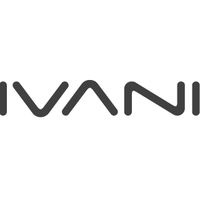The Data Revolution: How Sigma and Dremio are Shaping the Future of Automotive and AI
May 7, 2025, 9:53 am

Location: United States, New York
Employees: 51-200
Founded date: 2013
Total raised: $39M

Location: United States, Washington, Seattle
Employees: 201-500
Founded date: 2016
Total raised: $187M
In the fast-paced world of technology, data is the new oil. It fuels innovation, drives decisions, and shapes industries. Two companies, Sigma and Dremio, are at the forefront of this data revolution, each carving out a niche that promises to transform how businesses operate. Sigma is redefining the automotive landscape, while Dremio is revolutionizing data access for AI applications. Together, they illustrate the power of data in a rapidly evolving digital age.
Sigma has partnered with Snowflake to create automotive solutions that harness the power of the AI Data Cloud. This collaboration aims to help automotive manufacturers and suppliers navigate the complexities of digital transformation. The automotive industry is undergoing a seismic shift. Traditional mechanical manufacturers are evolving into data-driven software companies. Sigma is leading this charge, helping industry leaders break down data silos and manage connected vehicle data more effectively.
Imagine a factory floor where every machine communicates seamlessly. Sigma’s platform enables manufacturers to stream real-time operational technology data into Snowflake. This integration allows for instant analysis, providing insights that range from company-wide key performance indicators (KPIs) to granular machine-level metrics. It’s like having a crystal ball that reveals the health of operations at a glance.
The partnership also emphasizes the importance of collaboration. By integrating data across the automotive lifecycle—from design to production to service—Sigma and Snowflake create a holistic view of vehicle performance. This unified approach accelerates development cycles and enhances customer experiences. It’s akin to a well-oiled machine, where every part works in harmony to deliver superior results.
Moreover, the collaboration opens new revenue streams through data monetization. Automotive manufacturers can securely share and monetize data products via the Snowflake Marketplace. This not only enhances customer interactions but also fosters secure collaborations with ecosystem partners. The potential for innovation is vast, as companies can leverage insights to create personalized experiences and services.
On the other side of the data landscape, Dremio is making waves with its new MCP Server. This intelligent lakehouse platform brings AI-native data discovery and query capabilities to the forefront. By adopting the open Model Context Protocol (MCP), Dremio allows AI agents to explore datasets dynamically. It’s like giving AI a map to navigate the vast ocean of enterprise data.
The challenge of fragmented data is a common hurdle for organizations. Dremio’s MCP Server addresses this by providing a single, governed interface for data access. AI agents can now discover and query data in real time, translating natural language into SQL queries without manual integrations. This capability transforms how businesses interact with their data, making it more accessible and actionable.
Dremio’s semantic layer plays a crucial role in this transformation. It unifies data from various sources, allowing AI agents to leverage the entire data estate. This unified view empowers organizations to automate workflows, from reporting to customer segmentation. It’s like having a personal assistant that understands your needs and delivers insights at lightning speed.
The implications of Dremio’s advancements are profound. Companies can eliminate data silos, enhance operational efficiency, and accelerate digital transformation. The focus shifts from data management to data empowerment. With self-service access, business users can explore and analyze data independently, fostering a culture of data-driven decision-making.
Both Sigma and Dremio are not just responding to industry trends; they are shaping them. Sigma’s partnership with Snowflake addresses the urgent need for automotive manufacturers to adapt to a data-driven world. Meanwhile, Dremio’s MCP Server tackles the challenges of data fragmentation, enabling AI systems to unlock new possibilities for insights.
As the automotive industry embraces trends like autonomous driving and electric vehicles, Sigma’s solutions become increasingly relevant. The ability to analyze high-volume operational data in real time is a game-changer. It allows manufacturers to optimize supply chain resilience, improve demand forecasting, and enhance customer satisfaction. The road ahead is paved with opportunities for those willing to embrace data-driven strategies.
Similarly, Dremio’s commitment to open standards and community-driven innovation positions it as a leader in the lakehouse space. By building on technologies like Apache Iceberg and Polaris, Dremio prevents vendor lock-in and fosters flexibility. This approach ensures that organizations can adapt to changing needs without being tethered to a single provider.
In conclusion, the data revolution is here, and companies like Sigma and Dremio are leading the charge. They are not just providing tools; they are enabling a fundamental shift in how businesses operate. As data becomes increasingly central to decision-making, the ability to harness it effectively will determine success in the digital age. The future is bright for those who embrace this transformation, as the potential for innovation and growth is limitless. Data is no longer just a resource; it is the lifeblood of modern enterprises.
Sigma has partnered with Snowflake to create automotive solutions that harness the power of the AI Data Cloud. This collaboration aims to help automotive manufacturers and suppliers navigate the complexities of digital transformation. The automotive industry is undergoing a seismic shift. Traditional mechanical manufacturers are evolving into data-driven software companies. Sigma is leading this charge, helping industry leaders break down data silos and manage connected vehicle data more effectively.
Imagine a factory floor where every machine communicates seamlessly. Sigma’s platform enables manufacturers to stream real-time operational technology data into Snowflake. This integration allows for instant analysis, providing insights that range from company-wide key performance indicators (KPIs) to granular machine-level metrics. It’s like having a crystal ball that reveals the health of operations at a glance.
The partnership also emphasizes the importance of collaboration. By integrating data across the automotive lifecycle—from design to production to service—Sigma and Snowflake create a holistic view of vehicle performance. This unified approach accelerates development cycles and enhances customer experiences. It’s akin to a well-oiled machine, where every part works in harmony to deliver superior results.
Moreover, the collaboration opens new revenue streams through data monetization. Automotive manufacturers can securely share and monetize data products via the Snowflake Marketplace. This not only enhances customer interactions but also fosters secure collaborations with ecosystem partners. The potential for innovation is vast, as companies can leverage insights to create personalized experiences and services.
On the other side of the data landscape, Dremio is making waves with its new MCP Server. This intelligent lakehouse platform brings AI-native data discovery and query capabilities to the forefront. By adopting the open Model Context Protocol (MCP), Dremio allows AI agents to explore datasets dynamically. It’s like giving AI a map to navigate the vast ocean of enterprise data.
The challenge of fragmented data is a common hurdle for organizations. Dremio’s MCP Server addresses this by providing a single, governed interface for data access. AI agents can now discover and query data in real time, translating natural language into SQL queries without manual integrations. This capability transforms how businesses interact with their data, making it more accessible and actionable.
Dremio’s semantic layer plays a crucial role in this transformation. It unifies data from various sources, allowing AI agents to leverage the entire data estate. This unified view empowers organizations to automate workflows, from reporting to customer segmentation. It’s like having a personal assistant that understands your needs and delivers insights at lightning speed.
The implications of Dremio’s advancements are profound. Companies can eliminate data silos, enhance operational efficiency, and accelerate digital transformation. The focus shifts from data management to data empowerment. With self-service access, business users can explore and analyze data independently, fostering a culture of data-driven decision-making.
Both Sigma and Dremio are not just responding to industry trends; they are shaping them. Sigma’s partnership with Snowflake addresses the urgent need for automotive manufacturers to adapt to a data-driven world. Meanwhile, Dremio’s MCP Server tackles the challenges of data fragmentation, enabling AI systems to unlock new possibilities for insights.
As the automotive industry embraces trends like autonomous driving and electric vehicles, Sigma’s solutions become increasingly relevant. The ability to analyze high-volume operational data in real time is a game-changer. It allows manufacturers to optimize supply chain resilience, improve demand forecasting, and enhance customer satisfaction. The road ahead is paved with opportunities for those willing to embrace data-driven strategies.
Similarly, Dremio’s commitment to open standards and community-driven innovation positions it as a leader in the lakehouse space. By building on technologies like Apache Iceberg and Polaris, Dremio prevents vendor lock-in and fosters flexibility. This approach ensures that organizations can adapt to changing needs without being tethered to a single provider.
In conclusion, the data revolution is here, and companies like Sigma and Dremio are leading the charge. They are not just providing tools; they are enabling a fundamental shift in how businesses operate. As data becomes increasingly central to decision-making, the ability to harness it effectively will determine success in the digital age. The future is bright for those who embrace this transformation, as the potential for innovation and growth is limitless. Data is no longer just a resource; it is the lifeblood of modern enterprises.

